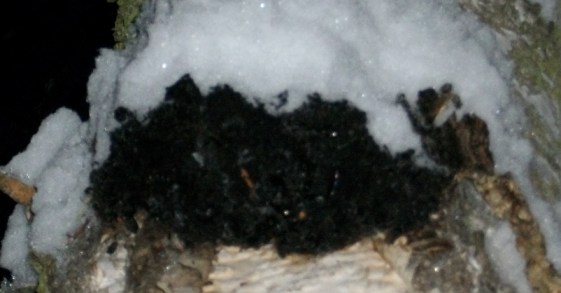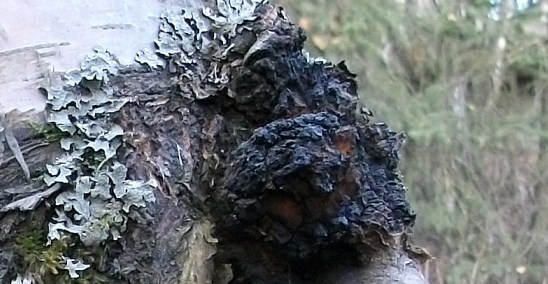Chaga Mushroom and HIV: Potential Benefits and Risks
Chaga mushroom, also known as Inonotus obliquus, is a type of fungus that grows mainly on the bark of birch trees in cold climates. It has been used for centuries in traditional medicine to treat various ailments, including digestive issues, skin problems, and infections. Recently, researchers have been investigating its potential to treat HIV in conjunction with antiretroviral therapy.
HIV is a virus that attacks the immune system, leaving the body vulnerable to infections and diseases. While antiretroviral therapy can help manage the virus and prolong the lives of those with HIV, there is still a need for new treatments to improve outcomes and quality of life. It has been found to have antiviral and immunomodulatory properties, making it a promising candidate for HIV treatment.
Chaga Mushroom: An Overview
Chaga mushroom (Inonotus obliquus) is a type of fungus that grows on the bark of birch trees in cold climates like Northern Europe, Siberia, Russia, Korea, Northern Canada, and the United States. It has been used for centuries in traditional medicine to improve overall health and well-being.
Chaga mushroom is known for its high antioxidant content, which can help protect the body against cellular damage caused by free radicals. It also contains a variety of other beneficial compounds, including polysaccharides, beta-glucans, and triterpenes. These compounds are thought to have anti-inflammatory, immune-boosting, and anti-tumor properties.
Chaga mushroom can be consumed as a tea or taken as a dietary supplement. It is often marketed as a natural remedy for a variety of health conditions, including cancer, diabetes, and HIV. While some studies have shown promising results, more research is needed to fully understand the potential health benefits of chaga mushroom.
Overall, chaga mushroom is a natural and potentially beneficial addition to a healthy diet and lifestyle. However, it is important to speak with a healthcare professional before using chaga mushroom or any other dietary supplement, especially if you have a medical condition or are taking medication.
HIV: A Brief Understanding
HIV, or Human Immunodeficiency Virus, is a virus that attacks the immune system, which is responsible for fighting off infections and diseases. The virus primarily targets CD4 cells, a type of white blood cell that plays a crucial role in the immune system. When HIV infects CD4 cells, it replicates and destroys them, leading to a weakened immune system.
HIV is primarily transmitted through blood, semen, vaginal fluids, and breast milk. The most common modes of transmission are unprotected sexual intercourse, sharing needles or syringes, and mother-to-child transmission during pregnancy, childbirth, or breastfeeding.
There is currently no cure for HIV, but antiretroviral therapy (ART) can effectively suppress the virus and prevent the progression of HIV to AIDS (Acquired Immunodeficiency Syndrome). ART involves taking a combination of medications that target different stages of the HIV life cycle, such as reverse transcriptase inhibitors and protease inhibitors.
People living with HIV may experience a range of symptoms, including fever, fatigue, weight loss, and swollen lymph nodes. However, many people with HIV may not experience any symptoms for several years after infection.
It is important for people living with HIV to receive regular medical care and adhere to their ART regimen to maintain a healthy immune system and prevent the progression of HIV to AIDS. Additionally, people living with HIV should take steps to prevent the transmission of HIV to others, such as practicing safe sex and not sharing needles or syringes.
Chaga Mushroom and HIV: The Connection
Chaga mushroom is a type of fungus that grows on birch trees in cold climates. It has been used for centuries in traditional medicine for its immune-boosting and anti-inflammatory properties. Recent studies have shown that Chaga mushroom may also have antiviral properties that could be beneficial for people living with HIV.
Antiviral Properties
The active compounds in Chaga mushroom, including polysaccharides and triterpenes, have been found to have antiviral effects against a range of viruses, including HIV. A study published in the Journal of Ethnopharmacology found that Chaga mushroom extract inhibited the replication of HIV in vitro, suggesting that it may have potential as an adjunct therapy for people living with HIV.
Another study published in the International Journal of Medicinal Mushrooms found that Chaga mushroom extract was effective in inhibiting the replication of herpes simplex virus (HSV) in vitro. While HSV is not directly related to HIV, the study’s findings suggest that Chaga mushroom may have broad-spectrum antiviral properties that could be beneficial for people living with HIV.
Immune System Support
One of the hallmarks of HIV is a weakened immune system, which makes people living with HIV more susceptible to infections and illnesses. Chaga mushroom has been shown to have immune-boosting properties that could help support the immune system in people living with HIV.
A study published in the Journal of Medicinal Food found that Chaga mushroom extract increased the production of cytokines, which are signaling molecules that play a key role in the immune response. The study’s authors suggest that Chaga mushroom may have potential as an immunomodulatory agent that could help support the immune system in people living with HIV.
Overall, while more research is needed to fully understand the potential benefits of Chaga mushroom for people living with HIV, the available studies suggest that it may have antiviral and immune-boosting properties that could be beneficial for this population.
Scientific Studies on Chaga Mushroom and HIV
Chaga mushroom has been the subject of several scientific studies in recent years, with researchers exploring its potential benefits for people living with HIV. Here are some key findings from these studies:
- In a study published in the journal “Pharmaceutical Biology,” researchers found that chaga mushroom extract had a significant inhibitory effect on HIV-1 replication in vitro. The study suggests that chaga mushroom may have potential as a natural anti-HIV agent.
- Another study published in “BMC Complementary and Alternative Medicine” investigated the effects of chaga mushroom on immune function in HIV-positive patients. The study found that chaga mushroom supplementation led to significant increases in CD4+ T-cell counts, which are important for immune function. The researchers concluded that chaga mushroom may have potential as an immune-modulating agent for people with HIV.
- A review article published in “Frontiers in Pharmacology” discussed the potential of chaga mushroom as an adjunct therapy for HIV. The authors noted that chaga mushroom has been shown to have anti-inflammatory and immunomodulatory effects, which could be beneficial for people with HIV. However, they also cautioned that more research is needed to determine the safety and efficacy of chaga mushroom as an adjunct therapy for HIV.
Overall, while the research on chaga mushroom and HIV is still in its early stages, these studies suggest that chaga mushroom may have potential as a natural anti-HIV agent and immune-modulating agent. However, more research is needed to fully understand its effects and determine its safety and efficacy as a treatment for HIV.
Potential Risks and Side Effects
Chaga mushrooms are generally considered safe, but they may pose some risks and side effects for certain individuals. It is important to consult a healthcare professional before consuming chaga mushrooms, especially if you have any underlying health conditions or are taking any medications.
Bleeding Risk
Chaga mushrooms may increase the risk of bleeding, especially when taken in high doses or in combination with anticoagulant medications like warfarin. This is because chaga mushrooms contain compounds that may interfere with blood clotting. Individuals who are taking blood-thinning medications or have bleeding disorders should avoid chaga mushrooms or use them with caution.
Allergic Reactions
Some individuals may be allergic to chaga mushrooms, which can cause symptoms such as itching, swelling, hives, and difficulty breathing. If you experience any of these symptoms after consuming chaga mushrooms, you should stop using them immediately and seek medical attention.
Digestive Issues
Chaga mushrooms may cause digestive issues such as diarrhea, nausea, and stomach pain in some individuals. This is because chaga mushrooms contain high levels of fiber, which can be difficult for some people to digest. If you experience any digestive issues after consuming chaga mushrooms, you should reduce your intake or stop using them altogether.
Drug Interactions
Chaga mushrooms may interact with certain medications, including blood-thinning medications, diabetes medications, and chemotherapy drugs. If you are taking any medications, you should consult your healthcare professional before using chaga mushrooms to avoid any potential drug interactions.
Other Considerations
Chaga mushrooms may also have other potential risks and side effects that are not yet fully understood. It is important to use them with caution and under the guidance of a healthcare professional. Pregnant and breastfeeding women should also avoid using chaga mushrooms due to the lack of safety data.
Conclusion
Chaga mushroom has been shown to have antiviral and anti-inflammatory properties, making it a potential candidate against the SARS-CoV-2 virus and other viral infections. Russian researchers claim that the Chaga mushroom can cure the Human Immunodeficiency Virus (HIV), despite no clinical trials to assess its safety or efficacy.
Although Chaga mushroom shows promise in treating HIV, it should not be considered a cure until further research is conducted. More studies are needed to determine the appropriate dosage, safety, and effectiveness of Chaga mushroom in treating HIV.
It is important to note that Chaga mushroom should not be used as a replacement for antiretroviral therapy (ART). ART is the standard of care for HIV treatment and has been proven to be effective in suppressing the virus and improving the quality of life for people living with HIV.
In conclusion, Chaga mushroom is a natural medicinal herb that has potential in treating HIV. However, further research is needed to determine its safety and efficacy. People living with HIV should continue to follow the standard of care for HIV treatment, which includes antiretroviral therapy.
Related Articles:
Wall Street Journal – Russian Mushrooms Kill HIV, Institute Says
HIV Plus Journal – Five New Ingredients for an HIV Cure?


